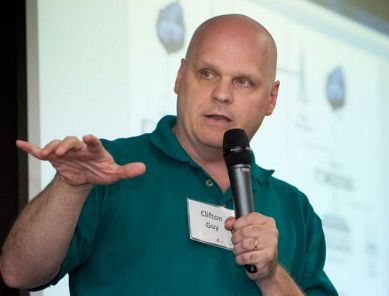United Methodists Aim to Build 100 Computer Centers in Haiti

United Methodists from the western U.S. have a goal of building 100 computer centers in Haiti to help the country develop its economy in the long term, as the country continues to recover from a devastating 2010 earthquake.
Warren Mcguffin, director of the Thomas Food Project of the California-Nevada Annual Conference says he wants to create a self-sustainable path for his friends in Haiti.
"We have a stake in the ground, a small, seven room school in Haiti," he told the United Methodist News Service.
The conference plans to build centers in four schools in the near term and 100 over the long term.
Haiti is still in the recovery process following the 2010 quake. The United Nations says the population of tent cities which sprung up after the quake has dropped from 1.5 million to 370,000.
The United Nations Office of the Special Envoy for Haiti, which is run by former U.S. President Bill Clinton, said Tuesday that just a little more than half of the $5.33 billion ($2.79 billion) pledged to help rebuild Haiti has been distributed. About three quarters of the pledges have been awarded to the Haitian government, non-governmental organizations, and private firms.
Basic and Long Term Needs
McGuffin told UNMS that he initially went to the country to learn about disaster preparedness for his conference and his church, San Romon Valley United Methodist church and saw children eating "mud pies."
He said the sight "tore us apart." He said he fed the children on his way home and started raising funds for them since that time.
"I decided I couldn't do that the rest of my life because when I died, no one else would raise that money," he said.
The conference aims to make the centers self-sustainable. The centers would benefit schools and the surrounding communities to generate income to cover costs, MucGuffin told UNMS.
Steve Elliot, a team leader for the California-Nevada conference's Haiti initiative said a recent technology training course has helped them think about issues they will face.
"The things that are new ideas for me are the technology choices," Elliot told UNMS. "The choices are a little more extensive and require more analysis than I expected. It's not like you can just plug into a network and it's all there ready for you.
Participants taking part in a training course by non-profit technology organization Inveneo were told in the training how to design centers that will work in an emerging economic are. The plan is made to allow for local ownership and sustainability.
Clif Guy, a training participant from Church of Resurrection in Leawood Kan., took the long view of the project.
"What's really important to us is not to do just one thing, but to think about sustainable economic development – to do things that could make a big impact over the course of decades, and not just relief of the acute earthquake situation," Guy said.